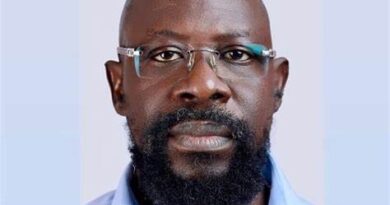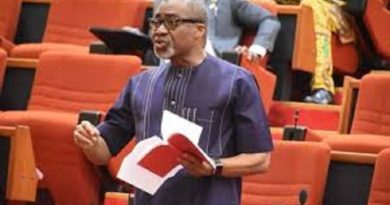Zulum: bring Chadian soldiers to join Boko Haram battle
The Borno State Governor Babagana Zulum on Wednesday asked the Federal Government to seek the support of the Chadian Republic military in its bid to end the security challenges in his state and other parts of the country.
The Nigerian Governors’ Forum (NGF) made good its promise to help Zulum tackle the insecurity in Borno by donating N100 million to the state.
Also on Wednesday, the House of Representatives renewed its call for the sacking of service chiefs by President Muhammadu Buhari.
Zulum has within a month escaped unhurt in two different attacks on his convoy by Boko Haram insurgents. The last which was on Sunday led to the death of four soldiers, 10 policemen and four civilians. Scores were also injured.
The governor told a visiting delegation of the NGF in Maiduguri, that with the way things are, the Nigerian Army required the assistance of others to reverse the insecurity in the Northeast and other parts of the country.
A statement by the NGF spokesman, Abdulrazaque Bello-Barkindo, quoted the governor as calling on the Federal Government “to ensure that Chadian soldiers are invited to join the Nigeria Army in the fight against insurgency if any meaningful success is to be recorded on the battleground.”
It added: “Zulum rationalised that no single army anywhere in the world has ever succeeded in quelling the insurgency. He requested that the government looked into ways of complementing the efforts of the Nigeria Army with the Chadian soldiers, emphasising that it is not to undermine the Nigerian soldiers but to help them in finishing the job within a realistic deadline.
”The governor told the team that things had degenerated to the extent that the majority of Borno State people displaced by insurgents now depend on aid for survival.
He pointed out that the Chad Basin, Sambisa Grazing Reserve and the Mandara Mountains, which used to employ about 10 million people, have been made inaccessible by terrorists.
The governor also said that the over 800,000 under-20 people currently residing in Monguno had become susceptible to being led astray if nothing was done to engage them positively.
He added that Gajiram Local Government Area alone has over 300,000 internally displaced persons that currently lack access to education and employment.
Zulum also vowed not to give up. He, however, said he would be more careful in his efforts to ensure that normalcy returned to the troubled state.
Chairman of the NGF, Governor Kayode Fayemi of Ekiti State, who led the delegation, commiserated with the governor over the deaths recorded in the Boko Haram ambush on Sunday.

Announcing the N100 million donation, Fayemi called on all to lend a helping hand to end insecurity in the land.
Fayemi, who admonished Zulum to exercise caution in his zeal to improve the safety of his people, “emphasized that Nigeria owes Borno people a duty to end this insurgency.”
The visiting team comprised the Chairman of the Peoples Democratic Party Governors’ Forum, Aminu Tambuwal (Sokoto State); the Chairman of the Progressives Governors’ Forum, Abubakar Atiku Bagudu (Kebbi) and the Chairman, Northern Governors’ Forum, Simon Lalong.
Also, the Army has said they are in full support of Zulum’s determination to relocate Internally Displaced People in his state.
The Army, in a statement by its Acting Director of Public Relations, Col. Sagir Musa, said as a patriotic and key agency in the war on terror in the Northeast, it would continue to do everything possible to ensure the actualisation of the governor’s desire.
It added that its Theatre Command had been directed to ensure the successful and seamless relocation of the affected people in the state.
The Army commiserated with the governor, families of all the slain soldiers, policemen and civilians.
The House of Representatives has said the “unjustifiable retention” of the Service Chiefs might be responsible for the rising insecurity in the country.
“The unjustifiable retention of the Service Chiefs may be the cause of the lingering problem as their defensive strategies seem to be obsolete and must have outgrown further learning,” the House argued.”




